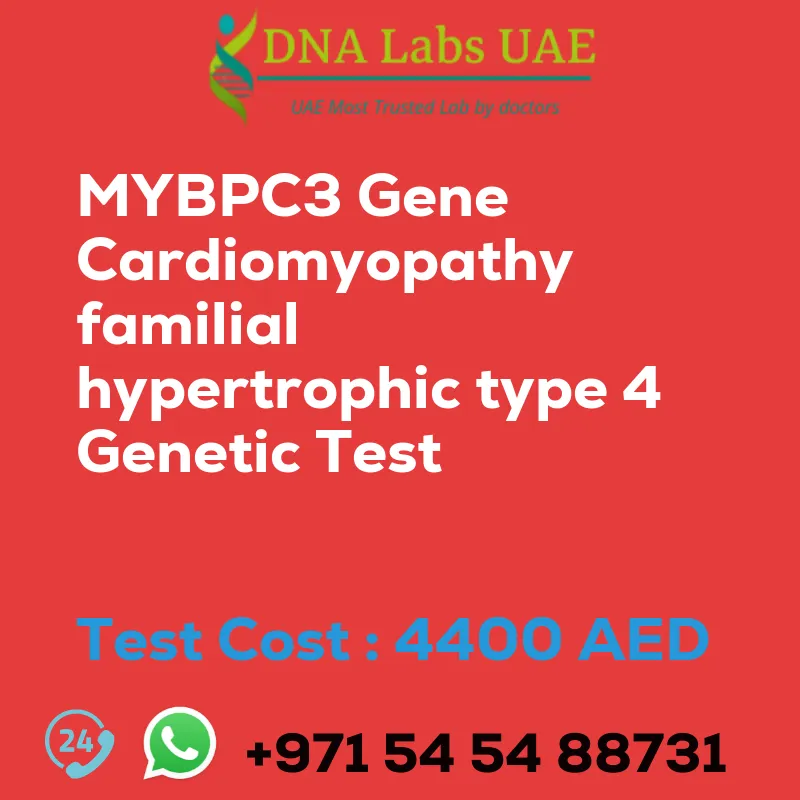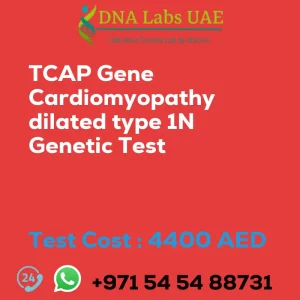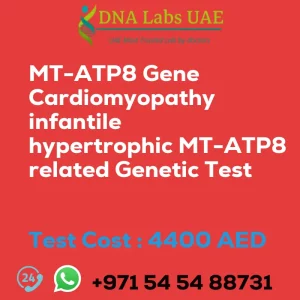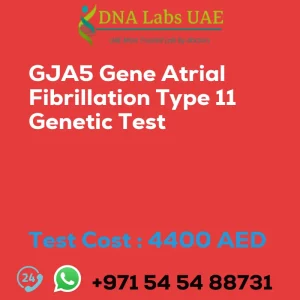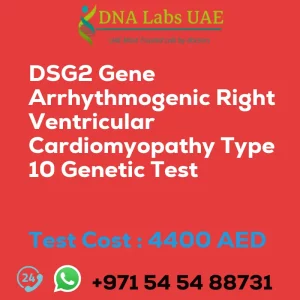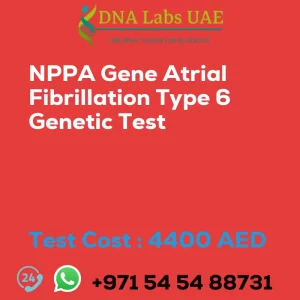MYBPC3 Gene Cardiomyopathy familial hypertrophic type 4 Genetic Test
Components:
- Price: 4400.0 AED
- Sample Condition: Blood or Extracted DNA or One drop Blood on FTA Card
- Report Delivery: 3 to 4 Weeks
- Method: NGS Technology
- Test Type: Cardiovascular Pneumology Disorders
- Doctor: Cardiologist
- Test Department: Genetics
Pre Test Information:
Clinical History of Patient who is going for MYBPC3 Gene Cardiomyopathy, familial hypertrophic type 4 NGS Genetic DNA Test. A Genetic Counselling session to draw a pedigree chart of family members affected with MYBPC3 Gene Cardiomyopathy, familial hypertrophic type 4 NGS Genetic DNA Test gene MYBPC3.
Test Details:
MYBPC3 gene cardiomyopathy, familial hypertrophic type 4 is a type of genetic disorder that affects the heart muscle. It is caused by mutations in the MYBPC3 gene, which provides instructions for making a protein called cardiac myosin-binding protein C. This protein is involved in regulating the contraction of heart muscle cells.
Familial hypertrophic cardiomyopathy (FHC) is a condition characterized by abnormal thickening (hypertrophy) of the heart muscle, particularly the left ventricle. This can lead to symptoms such as shortness of breath, chest pain, fatigue, and an increased risk of heart failure and sudden cardiac death.
NGS (Next-Generation Sequencing) genetic testing is a type of genetic testing that uses advanced sequencing technology to analyze multiple genes simultaneously. In the context of MYBPC3 gene cardiomyopathy, NGS genetic testing can identify mutations or variations in the MYBPC3 gene that may be responsible for the development of familial hypertrophic cardiomyopathy.
By detecting these genetic changes, NGS genetic testing can help diagnose individuals with familial hypertrophic cardiomyopathy, identify individuals at risk of developing the condition, and inform appropriate management and treatment strategies. It can also provide information for family members who may be at risk of inheriting the condition.
It is important to note that genetic testing should be performed and interpreted by qualified healthcare professionals, such as geneticists or genetic counselors, who can provide appropriate counseling and guidance based on the test results.
| Test Name | MYBPC3 Gene Cardiomyopathy familial hypertrophic type 4 Genetic Test |
|---|---|
| Components | |
| Price | 4400.0 AED |
| Sample Condition | Blood or Extracted DNA or One drop Blood on FTA Card |
| Report Delivery | 3 to 4 Weeks |
| Method | NGS Technology |
| Test type | Cardiovascular Pneumology Disorders |
| Doctor | Cardiologist |
| Test Department: | Genetics |
| Pre Test Information | Clinical History of Patient who is going for MYBPC3 Gene Cardiomyopathy, familial hypertrophic type 4 NGS Genetic DNA Test. A Genetic Counselling session to draw a pedigree chart of family members affected with MYBPC3 Gene Cardiomyopathy, familial hypertrophic type 4 NGS Genetic DNA Test gene MYBPC3 |
| Test Details |
MYBPC3 gene cardiomyopathy, familial hypertrophic type 4 is a type of genetic disorder that affects the heart muscle. It is caused by mutations in the MYBPC3 gene, which provides instructions for making a protein called cardiac myosin-binding protein C. This protein is involved in regulating the contraction of heart muscle cells. Familial hypertrophic cardiomyopathy (FHC) is a condition characterized by abnormal thickening (hypertrophy) of the heart muscle, particularly the left ventricle. This can lead to symptoms such as shortness of breath, chest pain, fatigue, and an increased risk of heart failure and sudden cardiac death. NGS (Next-Generation Sequencing) genetic testing is a type of genetic testing that uses advanced sequencing technology to analyze multiple genes simultaneously. In the context of MYBPC3 gene cardiomyopathy, NGS genetic testing can identify mutations or variations in the MYBPC3 gene that may be responsible for the development of familial hypertrophic cardiomyopathy. By detecting these genetic changes, NGS genetic testing can help diagnose individuals with familial hypertrophic cardiomyopathy, identify individuals at risk of developing the condition, and inform appropriate management and treatment strategies. It can also provide information for family members who may be at risk of inheriting the condition. It is important to note that genetic testing should be performed and interpreted by qualified healthcare professionals, such as geneticists or genetic counselors, who can provide appropriate counseling and guidance based on the test results. |

